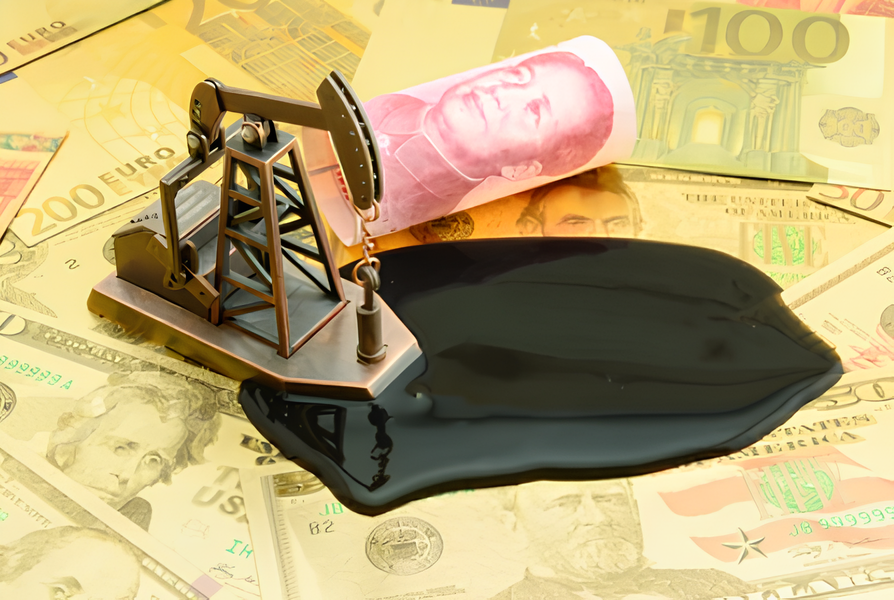
By The Tipping Point Tampa Bay
For nearly half a century, the petrodollar has quietly controlled the global financial system. It shaped wars, influenced foreign policy, and helped maintain America’s economic dominance. But as the underlying agreement approaches expiration, the world is changing faster than most citizens realize — and the ripple effects could alter everyday life here at home.
This isn’t conspiracy. It’s history.
How the Petrodollar Was Born

In the early 1970s, the United States faced a financial crisis of its own making. After decades of war spending and domestic programs, the country no longer had the gold reserves to back its currency. In 1971, President Richard Nixon ended the gold standard entirely, cutting the dollar from its traditional anchor.
The world panicked.
If the dollar was no longer tied to gold, what gave it value? How would countries trade? What would keep America’s financial system from collapsing?
The answer came in 1974 — a quiet deal struck between the United States and Saudi Arabia.
The agreement was simple:
- Saudi Arabia would sell oil ONLY in U.S. dollars.
- In return, the U.S. would provide military protection, weapons, and political support.
- Other OPEC countries followed suit.
Suddenly, if you wanted oil — the lifeblood of modern civilization — you needed dollars.
The dollar became sovereign energy.
Countries stockpiled U.S. currency. Global banks flowed it. World trade settled on it. America printed money, and the world absorbed it.
Just like that, the petrodollar was born.
Why It Worked
The system benefited nearly everyone — at first.
- Oil-rich nations gained security.
- The U.S. military-industrial machine expanded.
- American consumers enjoyed artificially cheap energy and goods.
- Banks thrived on international dollar demand.
And for decades, the world had no alternative.
But every empire eventually meets competition.
Cracks in the System
Fast forward to the 2000s and beyond:
- China rose as a superpower.
- Russia consolidated energy leverage.
- Nations grew tired of U.S. sanctions weaponizing the dollar.
Washington’s habit of punishing adversaries (and sometimes allies) through its financial system made other countries ask: Why trust a currency controlled by someone else’s politics?
Meanwhile, America printed trillions — COVID stimulus, wars, bailouts — weakening global confidence in the dollar’s stability.
The Quiet Expiration
Here’s where history turns.
The original U.S.–Saudi petrodollar agreement expires this year.
Saudi Arabia has already:
- Joined BRICS (Brazil, Russia, India, China, South Africa).
- Discussed accepting yuan (China’s currency) for oil.
- Signed energy deals with Russia and China.
- Begun exploring digital currency settlements.
The leverage is shifting.
What Happens if the Petrodollar Dies
If oil is no longer exclusively sold in U.S. dollars, global demand for the dollar could plummet. That means:
- Other countries will sell dollars to diversify.
- America’s ability to print money without consequence shrinks.
- Inflation accelerates.
- Borrowing becomes more expensive.
- The national debt crisis intensifies.
The average American will feel it through:
- Higher gas prices.
- More expensive imports.
- Increased interest rates.
- Shrinking savings value.
This is not an overnight collapse — but a slow erosion of privilege we’ve taken for granted for decades.
Why Countries Are Moving Away Now
Three major reasons:
- Multipolar global power
The U.S. is no longer the only major economic force. - Sanctions-fatigue
Countries want independence from U.S. political pressure. - Digital currency evolution
Nations are experimenting with cross-border payments without banks — or dollars.
Saudi Arabia sees the future — and they’re hedging.
The U.S. Response
Instead of diplomacy, our government:
- Argues internally over culture wars,
- Weaponizes agencies against political rivals,
- Prints money to solve systemic problems,
- Focuses more on division than strategy.
Meanwhile, our competitors build alliances.
We’re playing checkers on a chessboard.
Is This The End of the Dollar?
Not immediately.
The U.S. still has:
- The world’s largest consumer market,
- A powerful military,
- Deep financial infrastructure,
- Reservable trust in global commerce.
But the monopoly is fading.
Think of it like this:
When Netflix first launched, Blockbuster shrugged.
It didn’t collapse the next day — but the end was inevitable.
What We Should Be Doing (But Aren’t)
- Strengthening manufacturing
- Investing in domestic energy
- Repairing diplomatic relationships
- Reducing the national debt
- Encouraging innovation
- Educating citizens on economics
Instead, we argue about tweets.
What Citizens Can Do Now
- Stay informed — not inflamed.
- Diversify personal finances.
- Push lawmakers for fiscal responsibility.
- Support domestic energy production.
- Demand leaders who understand foreign economics.
Democracy collapses when the middle class collapses — and currency failure is gasoline on that fire.
The Tipping Point
We are watching the end of a financial era.
Where it goes from here depends on leadership —
and whether American citizens demand accountability instead of entertainment.
History is not written by the strongest nation.
It’s written by the smartest.
The petrodollar’s expiration isn’t just an economic chapter closing.
It’s a warning.
And the world is reading it.
Written by Scott Randy Gerber for The Tipping Point Tampa Bay©2025 All Rights Reserved.





